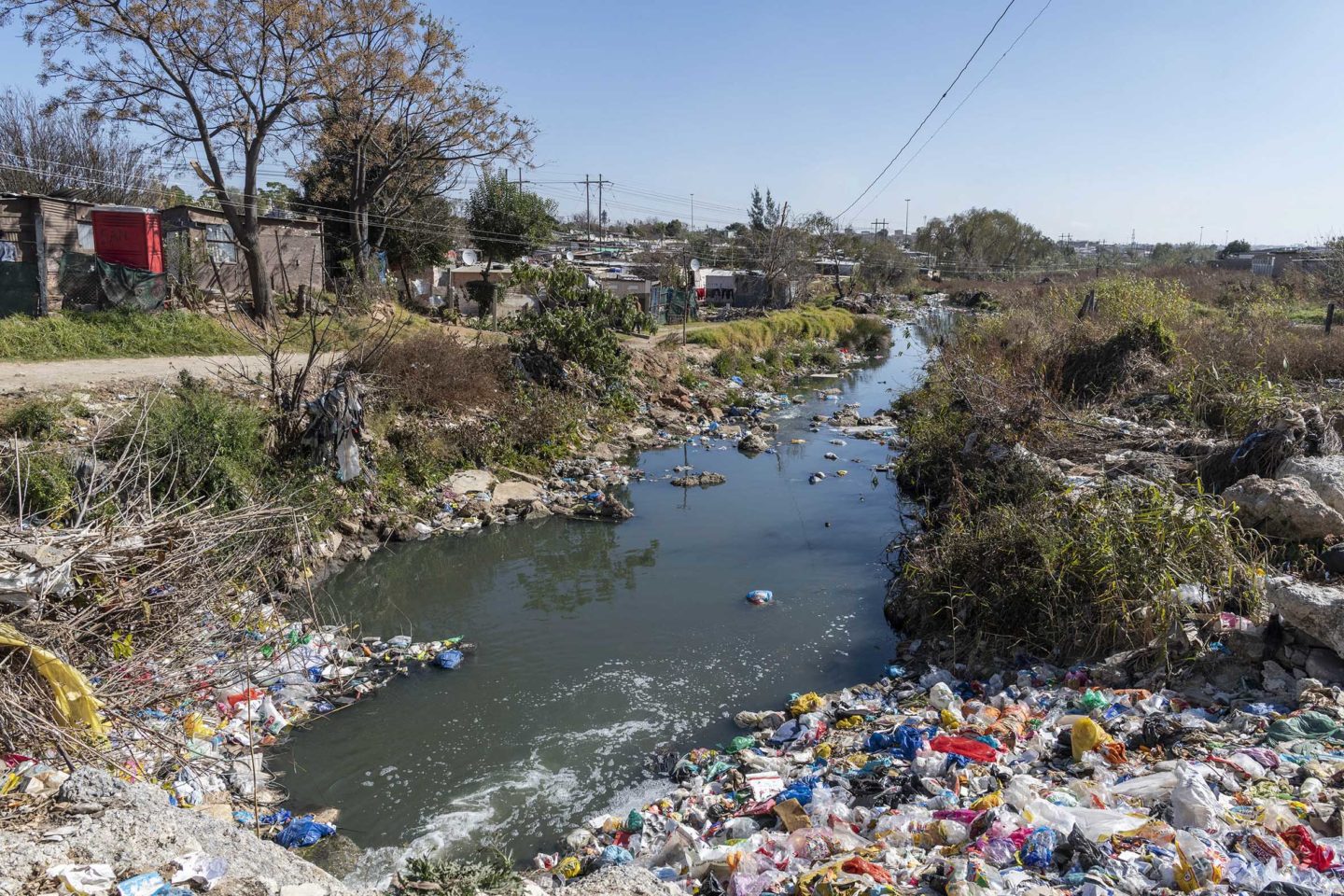Read the translated article in IsiZulu
In even the driest weeks of Gauteng’s winter, Musa Nonkwelo, 19, has to sidestep a stream of cloudy, polluted water and avoid a patch of dark muddy ground to reach her home’s front door. Inside, water seeps through the shack’s floor. During the summer months, she says, “it gets worse and worse when there’s heavy rains because the place doesn’t recover from the water”. Every year, the shack she shares with her grandmother and four siblings is flooded and their furniture damaged.
Nonkwelo has lived in eDampini, a shack settlement in Thembisa, for most of her life. She is a recently matriculated playwright and activist in the shack dweller’s movement Abahlali baseMjondolo. Melita Ngcobo, 41, a dynamic community leader and the chairperson of Abahlali’s Vusimuzi branch, has mentored Nonkwelo to be an activist who is outspoken about the government’s disregard and mistreatment of shack dwellers.
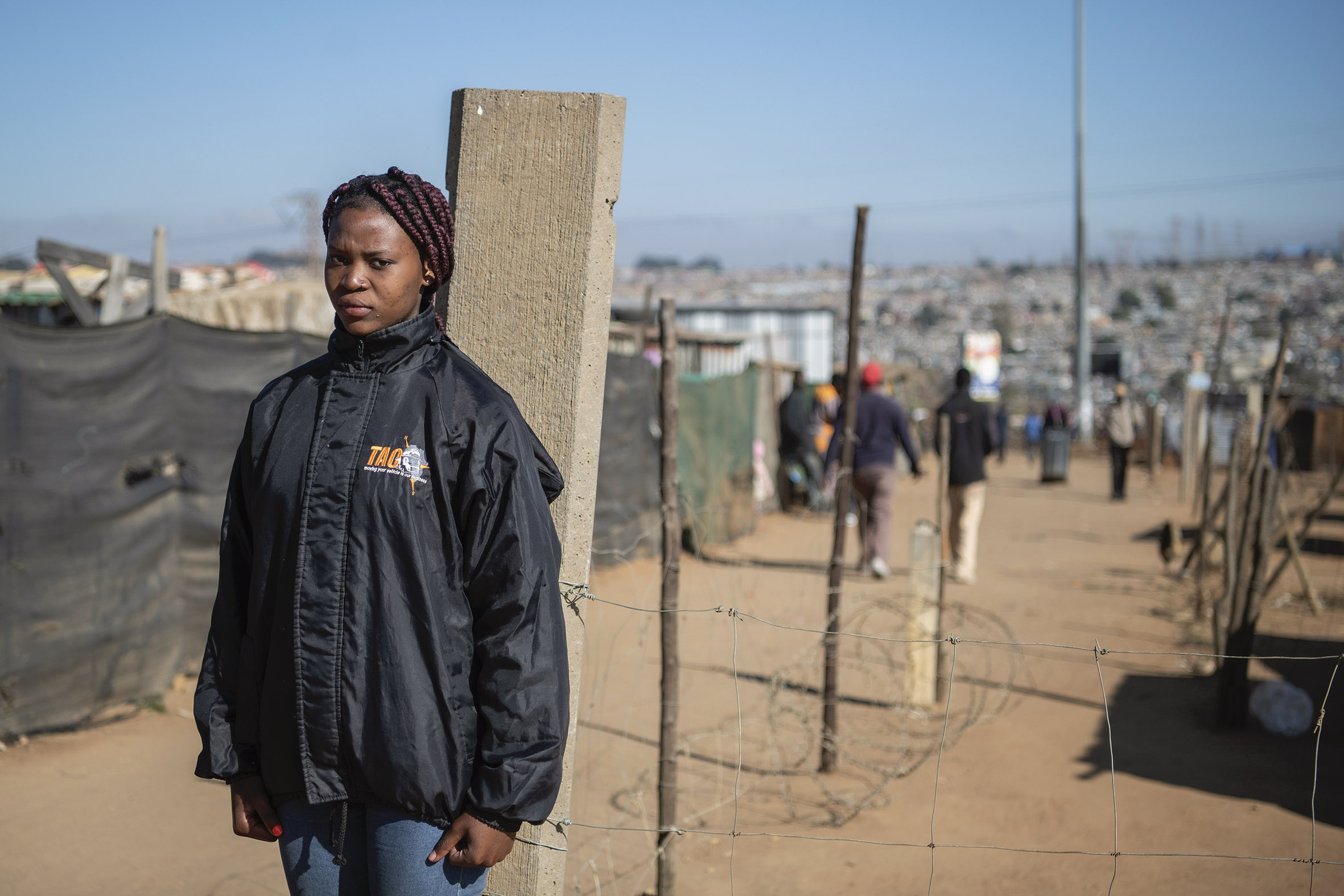

Both Ngcobo and Nonkwelo have been targeted for their work agitating for dignified living conditions. During a land occupation early in June, Nonkwelo says the Ekurhuleni metro police shot rubber bullets at her and more than a dozen other activists. Ngcobo, who claims she was assaulted and arrested by the police in 2019, says two gunmen recently intimidated her at her eDampini home. “And now I am in fear of my life. Maybe they will get it right next time,” she says.
In the context of the widespread assassination of Abahlali baseMjondolo activists, members of the Vusimuzi branch consider themselves lucky that no one has been killed. By May this year, 23 members of the movement had been assassinated.
In the late 1990s, as communities in Thembisa grew, eDampini was established on land that used to be a dumpsite. The layers of waste under the ground mean water simply doesn’t drain away from homes. Though there’s an excess of polluted water, potable water is lacking. The municipality has failed to provide basic water services and residents have to rely on communal taps and portable toilets while they channel dirty water away from homes with shallowly buried pipes.
Oppression through neglect
Nonkwelo worries about her grandmother, who walks with crutches over their neighbourhood’s uneven and soggy ground. The constant dampness worsens her chronic ill health. Nonkwelo is especially concerned because water has eroded the settlement’s roads so severely that emergency service vehicles cannot navigate them. “We can’t get ambulances. We can’t get anything. We are oppressed,” she emphasises. The residents describe having to rush patients in wheelbarrows to reach the edge of the settlement where an ambulance will wait.
These conditions mean that Nonkwelo and Ngcobo are both eager to leave eDampini, like many other residents in the settlement. They want to move 2km away to a piece of land near Zikode Village, a land occupation established in 2019 and named after Abahlali founder S’bu Zikode.
The local ward councillor, Hendrick Selwana, is the third councillor to promise to relocate the residents from the pollution and dampness of eDampini. At the beginning of June, the municipality began to move some of the households to the site near Zikode Village. Selwana declined to comment.
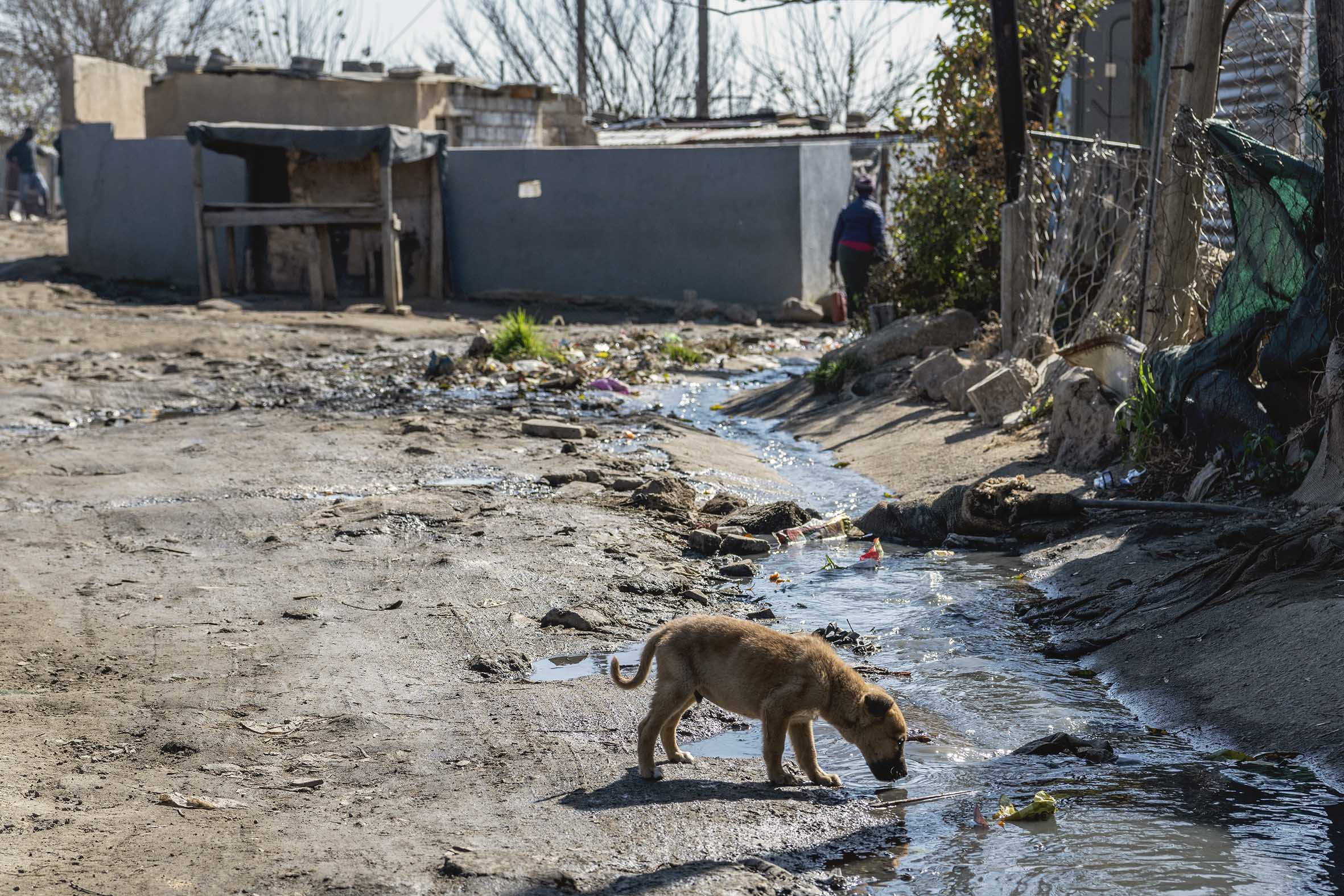

However, for many who lived in multiroom shacks with at least modestly sized yards in eDampini, the tightly packed, one-room, eight-by-eight metre shacks to which residents are being relocated are a downgrade. “I am appealing that if they were to take us from our homes to the riverside it must take us to a better place,” says Ngcobo. “You cannot take me from a house that I have built myself and then you take me to a shack, to a one-room shack. That cannot happen.”
The relocation process has repeatedly disregarded the interests of the eDampini and Zikode Village community, sowing the seeds of division and hostility. eDampini residents say they do not recognise many of the people who are being moved into the shacks near Zikode Village. The Abahlali activists emphasise that they will treat everyone who arrives in the community with openness, but they are angry at Selwana for failing to keep his promises and following what they consider to be a corrupt and non-transparent process.
A pressing issue for residents like Martina Mokone, a recycler who lives on the edge of Zikode Village, is the threat that the size of their yards will be cut to make space for the new settlement. Mokone has a vegetable garden with kale and onions in her backyard. She was told by municipal construction manager Jabulani Mthethwa that her vegetable garden will be cut in half to make way for the resettlement.
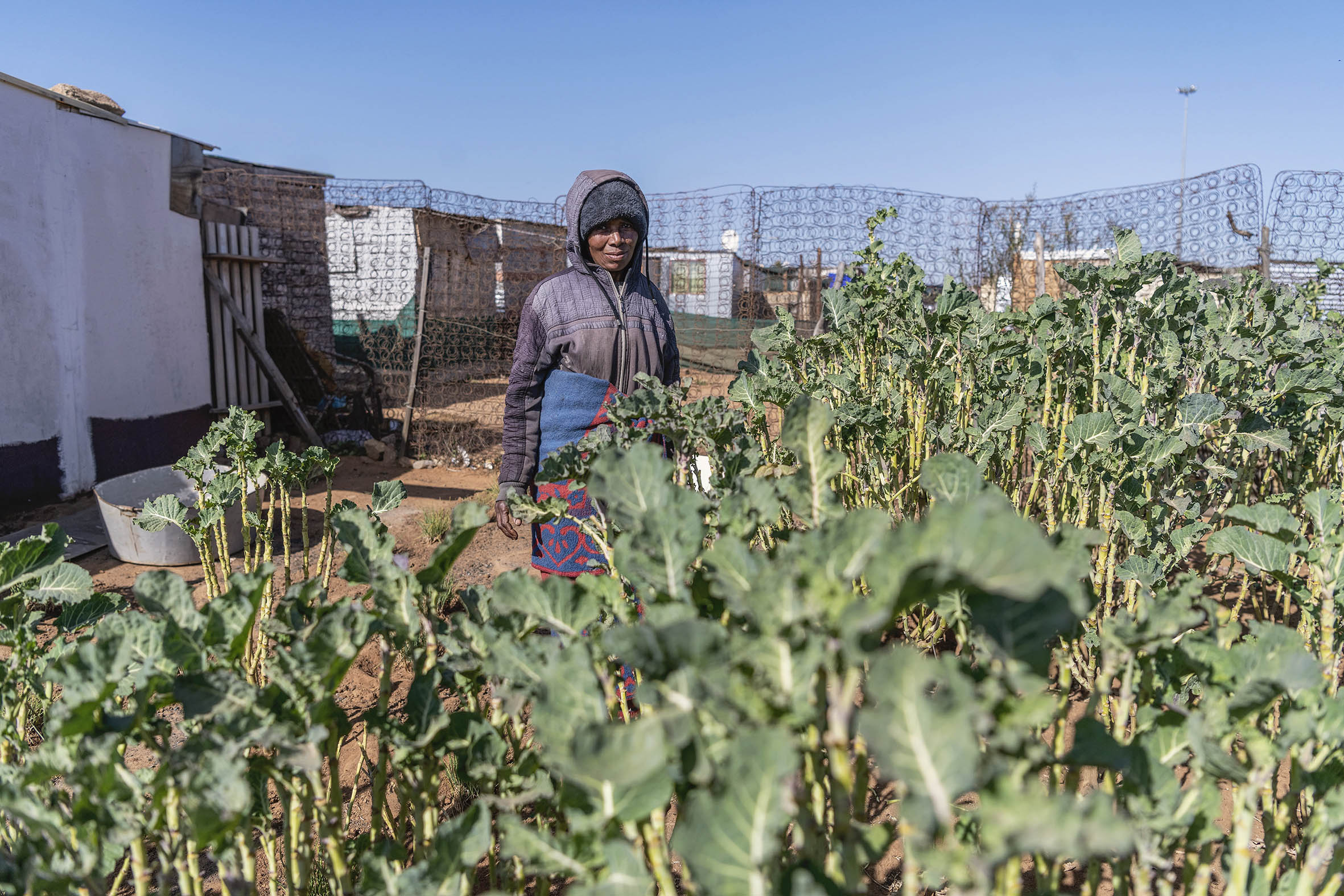

Violence and intimidation
Most recently, the process of moving people from eDampini has been marked by violence against Abahali baseMjondolo activists. On 13 June, activists set up a land occupation in the area they believe was set aside for them. A convoy of Ekurhuleni metro police vehicles soon arrived. According to the activists, in a display of brutality, the police dismantled their shacks, allegedly burned their belongings and fired both rubber bullets and live ammunition at those occupying the land.
Later in the day, what they say are paid hitmen from the nearby Ehlanzeni hostel fired guns at Zikode Village. It is widely believed among the activists that the hitmen work closely with a political leader to intimidate residents.
The police allegedly wounded 15 people, including two whom they allegedly shot with live ammunition. eDampini resident Xolani Haas, 39, was injured when he was allegedly shot in the leg with live ammunition. An unemployed father of four, he lost his job at a cleaning services company at the beginning of the Covid pandemic. He received treatment for his gunshot wound at a hospital, but was quickly discharged after a doctor allegedly told him that he was “wasting state resources because you are occupying land that is not yours”. A week after being discharged, his wound was still bleeding.
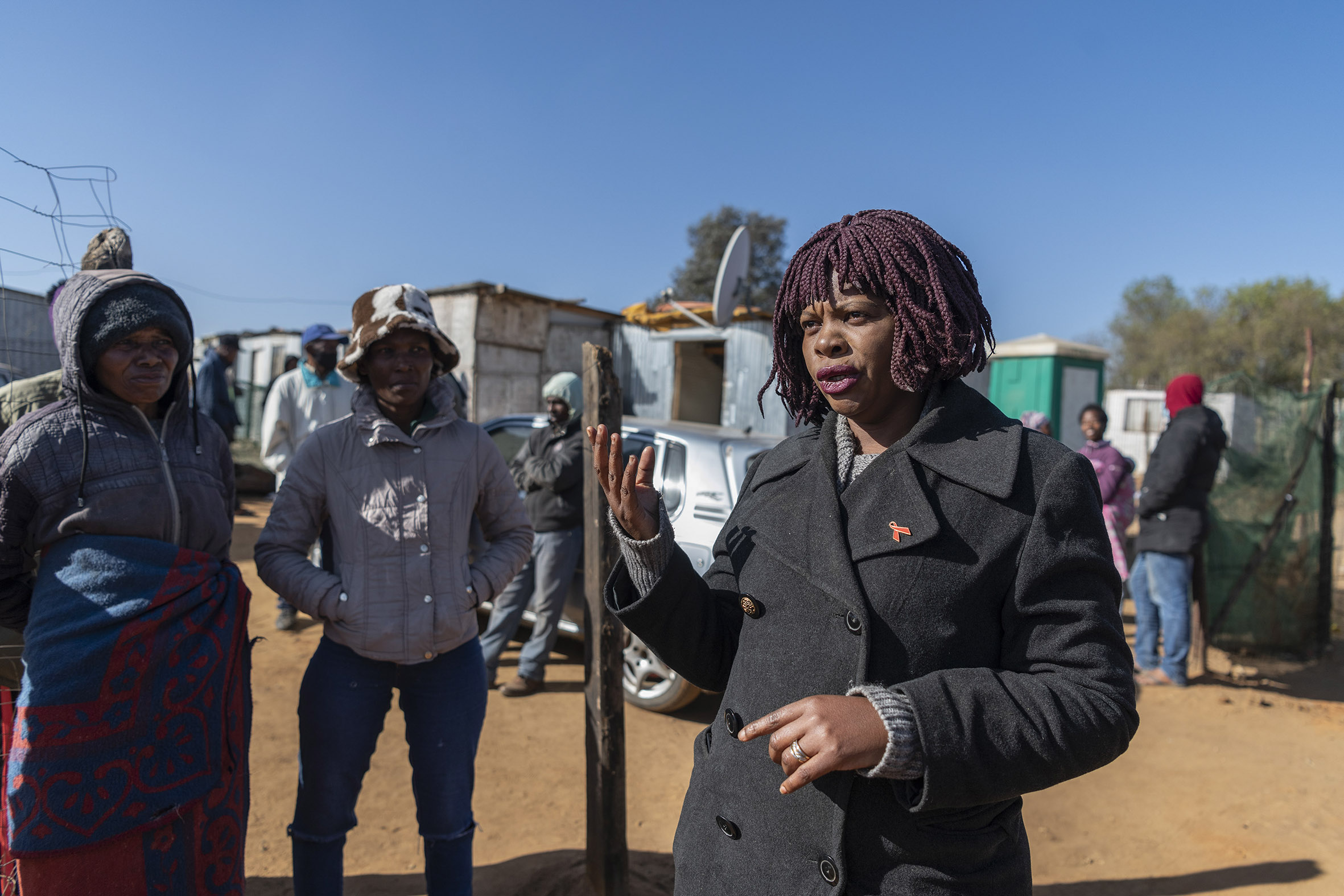

Rather than a long-awaited response to the community’s needs, the relocation has brought violence and strife to eDampini. “Zikode Village was a very peaceful place but they took that away,” says Ngcobo. Despite the intimidation, activists like Nonkwelo and Ngcobo
are working hard to repair the divisions that the relocation is bringing and remain steadfast in their demands. They want decent housing, the provision of basic services and a ward councillor who does not disregard them.
A spokesperson for the Ekurhuleni metro police said they responded to threats of a land occupation in support of the Gauteng Department of Human Settlements. The police acknowledged the use of rubber bullets, allegedly in response to protesters throwing stones, but said the allegations of live ammunition were false. They said they would investigate any claims of police brutality if these were brought forward. Ngcobo plans to file a complaint.
